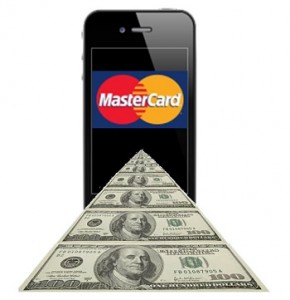While half of all American retail transactions are still completed in cash, smartphones may soon change that.
When it comes to retail purchases in-store in the United States, about 50 percent are still being completed with cash, but according to Ajay Banga, the CEO of MasterCard, mobile payments will start to change that, and it won’t be long before it happens.
Banga spoke of his opinion on mobile solutions at the Deutsche Bank Global Financial Services Investor Conference.
He explained that the area in which mobile payments will make the most striking impact is in the percentage of transactions that it will be taking from cash as opposed to plastic cards. He said that he feels that smartphone based transactions are the way ahead, pointing out that in the United States, we feel as though credit and debit cards are essentially ubiquitous, but when it all comes down to it, half of all purchases are made with cash.
Both mobile payments and cash are being used primarily for smaller ticket purchases.
 While smartphones may not be making much of a dent into larger purchases, people do seem willing to buy with their mobile devices with the total is a smaller one. That also happens to be the area in which people are most likely to pay with cash. Therefore, what Banga is predicting is that it will be cash, not necessarily plastic cards, that will start to be replaced by the use of these devices at the checkout counter.
While smartphones may not be making much of a dent into larger purchases, people do seem willing to buy with their mobile devices with the total is a smaller one. That also happens to be the area in which people are most likely to pay with cash. Therefore, what Banga is predicting is that it will be cash, not necessarily plastic cards, that will start to be replaced by the use of these devices at the checkout counter.
Therefore, for items like a cup of coffee, picking up a container of milk at the supermarket on the way home from work, or picking up a pack of gum at the convenience store, a rising number of transactions will be completed through the use of m-payments instead of cash. This may also start to have an impact in other areas that have been traditionally based on cash transactions, such as taxi fares, which are still relatively new to the credit card scene.
Mobile payments are still trying to find their place when it comes to adoption and regular use and, if MasterCard’s CEO is right, it isn’t the credit card transactions that will be taken over by this technology, but the cash ones.

